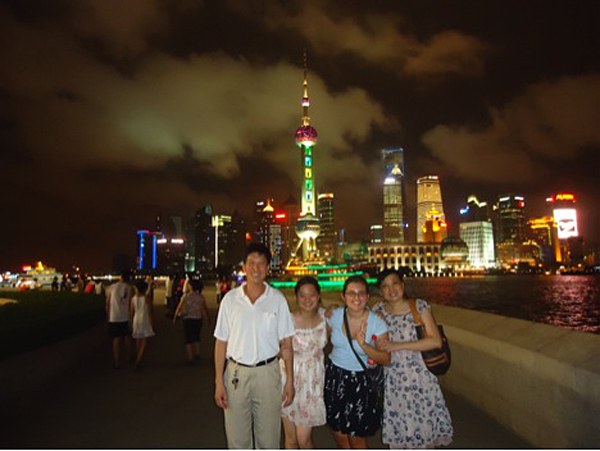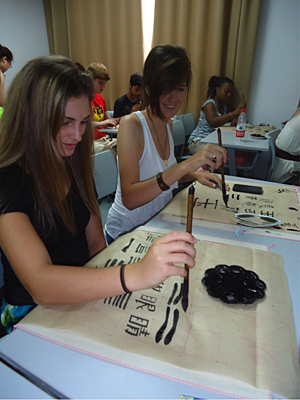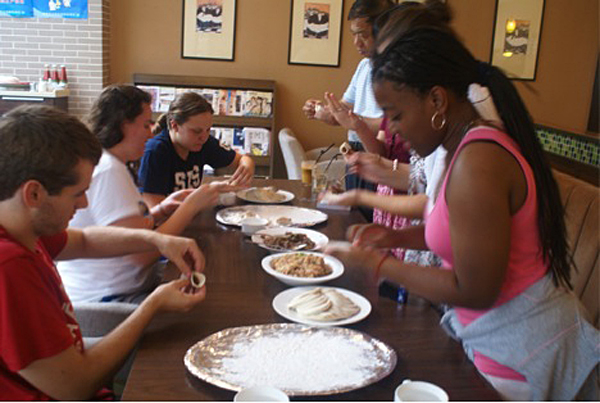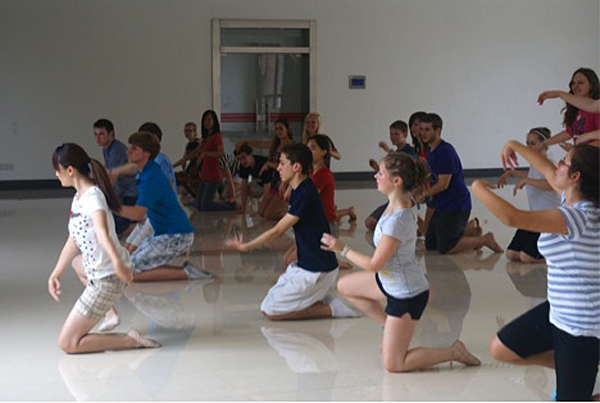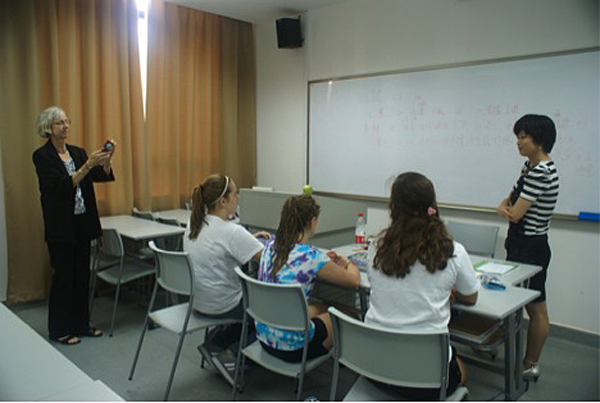

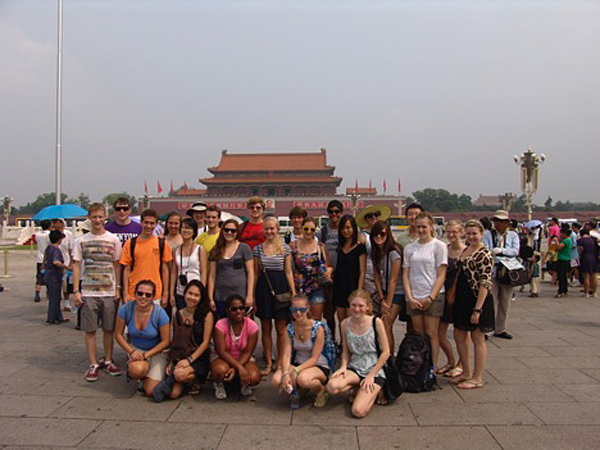
Summer institute in China
UD-State Department program immerses high school students in Chinese language, culture
12:01 p.m., Aug. 8, 2011--In Shanghai, an ancient city whose futuristic skyscrapers serve as striking symbols of China’s rising economy, 24 U.S. high school students have been immersed in the Chinese language and culture through a unique summer institute led by the University of Delaware and sponsored by the U.S. State Department.
The institute, under way from June 27 to Aug. 7, is part of the State Department’s National Security Language Initiative for Youth (NSLI-Y). It is driven by a presidential initiative to prepare Americans to be leaders in a global world by improving their ability to engage with people internationally, particularly in countries where Mandarin Chinese, Arabic, Hindi and other lesser-taught languages are spoken.
Global Stories
Fulbright awards
Peace Corps plans
Jianguo Chen, associate professor of Chinese studies and director of the Confucius Institute at UD, won a $275,520 grant to host the institute, which is now in its third consecutive year under his leadership. The grant is administered through the American Councils for International Education, a nonprofit organization that conducts more than 30 exchange and training programs worldwide.
Chen’s co-directors include Maria Tu, assistant professor of Chinese in the Department of Foreign Languages and Literatures, and Jianjun Huang, deputy dean of the International Education College at Xiamen University, who also co-directs the Confucius Institute at UD.
UD’s partner institution in Shanghai is East China Normal University, a major research and teaching institution that provided a director-in-residence, as well as two program assistants, one of whom is a UD graduate.
“A major goal of our institute is to provide American students not only with an academically exciting adventure, but more importantly, the knowledge and experiences that will be useful in their lives as they continue their study of Chinese language, culture and history in high school and college,” Chen says.
The 24 students selected this year from more than 600 applicants across the country received over 120 hours of intensive instruction and tutoring in Mandarin Chinese, took courses in Chinese history and culture as well as an e-portfolio course that documented their personal journey in China, stayed with a Chinese family for 15 days, and explored China’s culture through guest lectures and field trips.
With the institute’s theme “Understanding Modern China: Tradition and Transformation,” the group explored issues affecting U.S.-Sino relations, such as Taiwan, foreign trade, regional conflicts, the North Korea nuclear crisis, women’s issues, the one-child policy and China’s aging population.
“A unique feature is our cultural lecture series focusing on contemporary Chinese society in relation to the international community,” Chen notes. “Cultural icons and celebrities served as our guest speakers, examining such topics as mass media’s effects on Chinese society, to China’s rapid economic growth and its impact on the world.”
Students interested in careers as diplomats received valuable guidance firsthand from the American General-Consulate in Shanghai. Public affairs officer Gregory Pfleger made a special trip to East China Normal University on July 15 to talk to the students about the importance of studying the Chinese language and how to prepare for a profession in the U.S. Foreign Service.
“Our students gained new language skills every day, and it was very gratifying to see their hard work and progress as they strived for excellence,” Chen notes. “We hope this experience will spark a lifetime of learning about the Chinese language and culture.”
Assessment is an important component of the program. On July 15-16, Carol Radomski of the U.S. State Department flew from Washington, D.C., to visit the institute. She observed the language classes, interviewed the students in private, met with the program faculty and staff, talked with the ECNU staff, watched the students’ cultural activities and visited the Chinese host families.
“I am very impressed by what you all are doing,” Radomski concluded. “You have such a great program and we are so fortunate to have you and your team [UD] on this NSLIY program.”
According to the surveys completed by the summer institute’s 2010 alumni, the program is more than meeting its goals: “It was the greatest experience I have ever had,” one student commented.
Another wrote: “Getting to stay with my host family was a really memorable experience. I had a chance to experience life as a native and got to practice my Chinese a lot. My host family was so kind and hospitable -- they really treated me like a second daughter.”
Another participant said: “Due to the NSLI-Y program, I know that I want to incorporate my knowledge of Chinese into my career (maybe in international business or international relations).”
Article by Tracey Bryant




